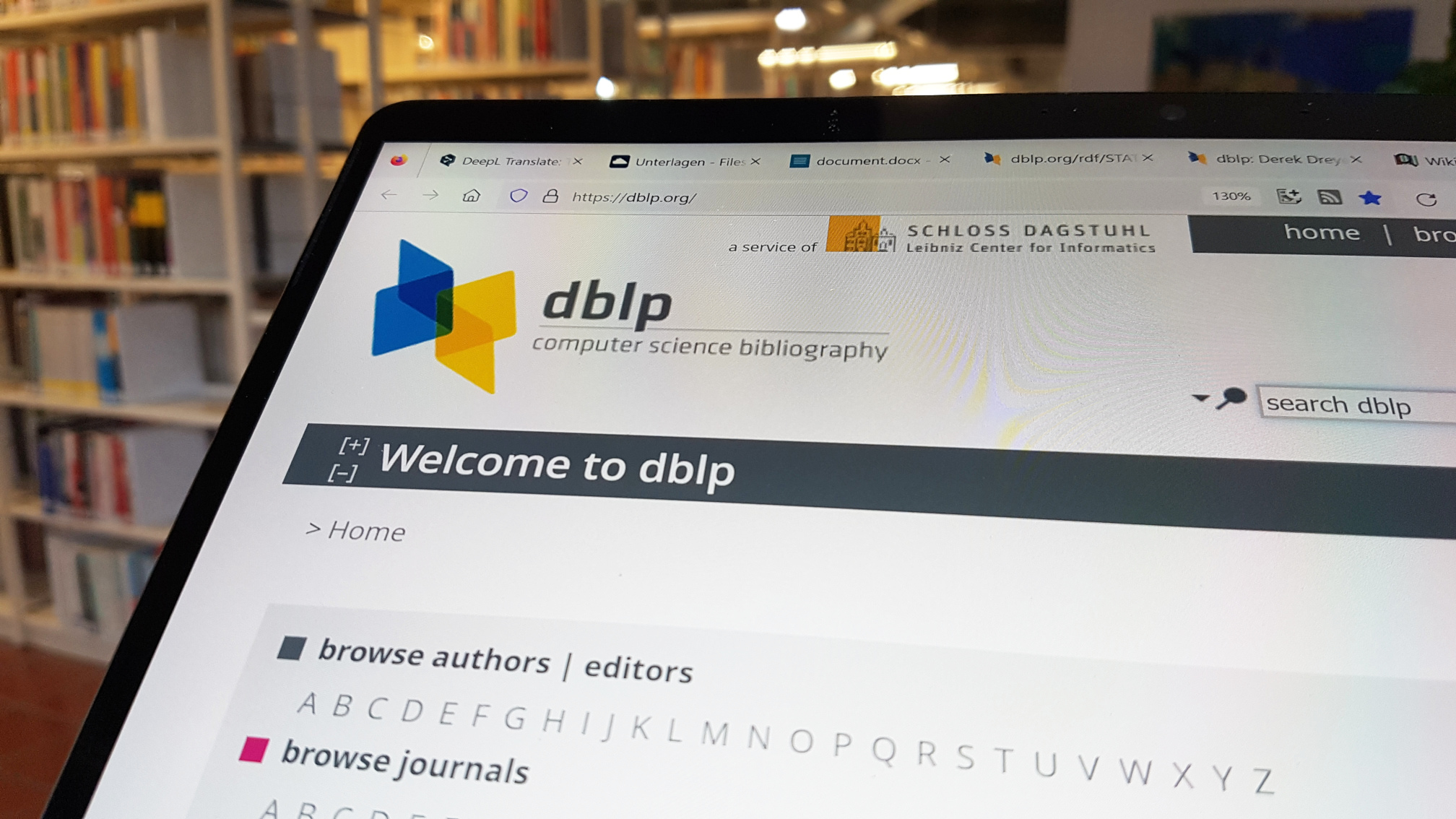The dblp computer science bibliography is the premier open bibliographic data base, search engine, and knowledge graph on computer science publications. It has evolved from an early small experimental web server to a popular online service for the international computer science community. Our mission is to support computer science researchers all over the world in their daily efforts by providing free access to high-quality bibliographic metadata and hyperlinks to the electronic editions of publications.
As of 2023, dblp indexes over 6.5 million publications, published by more than 3 million authors. To this end, dblp covers more than 50,000 journal volumes, more than 50,000 conference and workshop proceedings, and more than 100,000 monographs. Please find more statistics on dblp here. The dblp team places particular emphasis on the reliability and quality of the metadata entries. Every year, more than 500,000 new publications are added to dblp in a rigorous, semi-automated and semi-manual data curation process.
Via its website dblp.org, dblp provides unique insight into the complex interrelations and semantic networks of international computer science research. All data is also made publicly available for reuse under the CC0 1.0 Public Domain Dedication license as bulk download and via open data APIs. Every month, the dblp servers record more than 40 million page impressions by more than 750,000 users from all over the world.
In recent years, the database has grown to be a powerful semantic tool that supports computer scientists and stakeholders on several levels, for example by:
- supporting researchers in their day-to-day work, e.g., when reviewing the literature or searching for full-text research articles
- supporting the scholarly publication process by providing standardized bibliographic reference data
- supporting researchers and institutions in their reporting duties by curating quality-assured bibliographies
- supporting research funders and decision-makers, e.g., by providing publicly available and explorable bibliographic references
In addition, the dblp dataset itself is object of study of several thousand research articles. Hence, dblp has become indispensable to the computer science community as both a research information infrastructure and as a research dataset.
dblp-Statistics
- # of publications: 7,816,615
- # of authors: 3,762,025
- # of conferences: 6,868
- # of journals: 1,879


